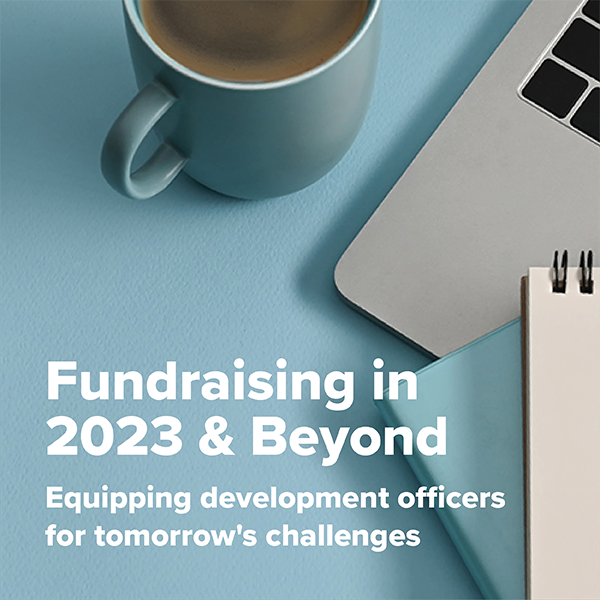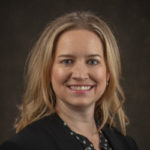What if there was a crystal ball that could show you what the future of fundraising has in store?
We might not have that exactly, but we do have the next best thing: a conversation with two VPs that have a pulse on where their shops – and the advancement industry overall – should be heading.
We’ve gathered some highlights below, but make sure to check out the entire discussion via this on-demand webinar. There’s a lot of great content waiting for you there – from how they’re leading their teams to fundraise in uncertain economic times, to how to keep and retain talent at your shop.
Hear their thoughts on…
The missing middle and how to engage constituents who are not yet assigned to a major gift portfolio
We know that only 2% of constituents are assigned to a major gift portfolio (Source: EverTrue Analysis). But there are many more potential donors ready to be engaged!
Connecting with the other 98% of your database sounds like a daunting task, but it’s actually not so far out of reach. Donor Experience Officers manage portfolios of 1,000 or more constituents and, as both University of Memphis and Western Kentucky University have seen, are able to provide individualized outreach and create more meaningful engagement.
Polite persistence, as we like to call it, really pays off with more qualifications happening than ever before, and more donors being added to that pipeline.
Amanda Trabue on the importance of polite persistence
Building a talent pipeline
Culture is key. Both Memphis and WKU have worked hard to build a culture focused on accountability…and flexibility. Embracing remote work has helped them do that.
Gift officers don’t need to be behind a desk all day. In fact, they shouldn’t be! Joanna Curtis’ staff uses EverTrue to seamlessly help manage their portfolio no matter where they are – whether it be at home, in the office, or on the road.
Having data always at their fingertips helps their team remain nimble, efficient, and connect with more donors. Coaching, mentorship, and guidance also help recruit and retain staff.
Through the training and guidance SDXOs and DXOs receive, they are well-prepared to take the next step as development officers. SDXOs graduate and become DXOs, DXOs are ready to become major gift officers, and that talent pipeline at your institution builds itself.
Joanna Curtis on building a talent pipeline
Doing more with less
It’s no secret many advancement shops are small but mighty teams. With so many priorities to fundraise for and constituents to engage, it can feel overwhelming to keep moving forward while upping productivity.
Set your team up for success by working on the qualification process. By making sure the right people are in a major gift officer’s portfolio, you are enabling them to build a meaningful relationship, move through the process, and close that gift more quickly.
The Donor Experience program has helped Memphis and Western Kentucky with their qualification process – the DXOs are talking to and identifying prospects that will be able to move through the pipeline. They’re building those initial relationships to help get potential donors into the fold, and are really combing through to find those needles in the haystack.
Amanda Trabue on making sure the right people are being reached out to, and trusting the process
Fundraising in uncertain economic times
It can feel intimidating to have a conversation with donors while the economy is turbulent. Joanna and Amanda’s advice is to keep those lines of communication open. Be flexible. Keep engaging. Remain respectful and conscious, but keep the donor talking.
The opportunity may not be there right now, but things may change down the line, and you don’t want to lose that donor’s interest when they do. And, keep in mind there is still a good ask to fold in!
When the economy gets rocky, students and universities need financial support more than ever. It’s important to keep your donors educated on those needs, because you never know who may be ready and willing to jump in and help out.
Joanna Curtis on continuing to engage with donors during uncertain economic times
Growing in their careers
With no hesitation, both Joanna and Amanda agreed that taking advantage of connections across the industry, asking questions and getting feedback, is the best way to keep moving. Be open to sharing your own experience and asking others about theirs – we are all each other’s best resources!
As Amanda noted, “At the end of the day, we aren’t competing with each other. We can share the things that are working and the things that are not.”
And we are so thankful Amanda and Joanna shared all of the lessons they’ve learned with us.
Check out the full conversation and get inspired as we head into 2023.


